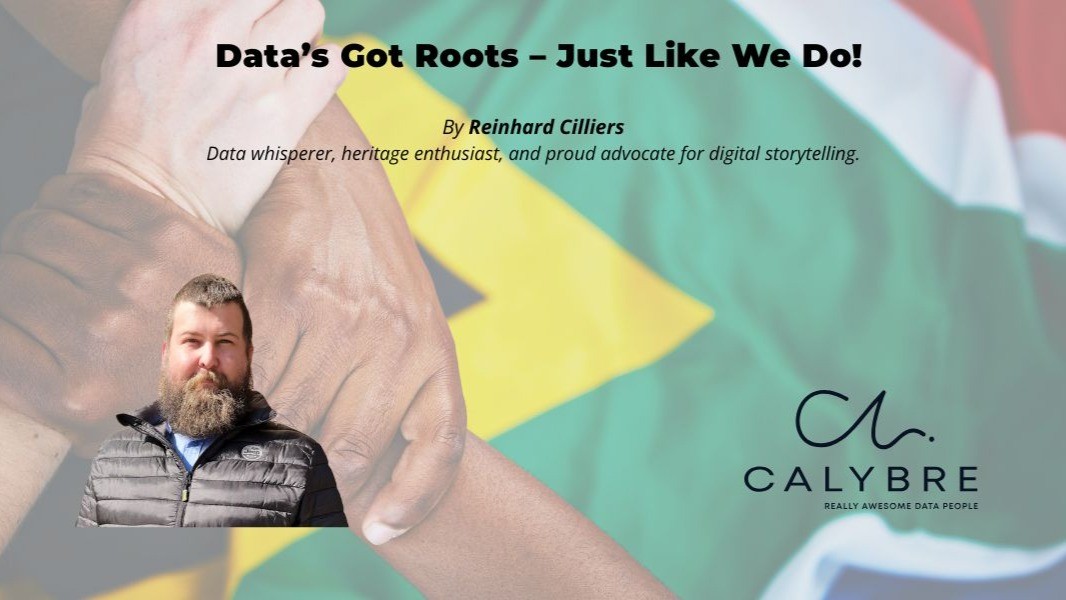
Data lineage is the practice of tracking and visualizing the flow of data as it moves through an organization. From its origin to its destination. It is a vital component in managing data integrity, ensuring transparency, and maintaining compliance in today’s data-driven world.
Data lineage helps organizations understand how data is sourced, transformed, and used. This allows for accurate reporting, improves decision-making, and minimizes risks by ensuring data accuracy and traceability.
Just as data lineage traces the movement of information, South Africa’s Heritage Day celebrates the lineage of the nation’s people, culture, and traditions, honouring the diverse cultural practices that make up the national fabric.
On this day, 24 September, South Africans reflect on their origins, much like how an organization reflects on the origins and transformations of its data.
Heritage Day encourages citizens to embrace the unique contributions of their cultural backgrounds, from the Zulu people’s beadwork that tells stories of ancestry to the Xhosa’s traditional craft of pottery, which preserves age-old methods of creation.
Similarly, understanding data lineage is a way of acknowledging where data comes from, how it evolves, and its eventual use in decision-making. Both concepts emphasize the importance of tracing the past to ensure a clearer, more informed future.
While data lineage emphasizes the journey of information through various stages of transformation Heritage Day highlights the cultural journeys and transformations that define the South African nation.
In South Africa, the Ndebele’s colourful murals and the Sotho’s woven tapestries are visible representations of the evolving art and cultural expressions passed down through generations, each piece telling the story of a people and their history. Just as data lineage ensures the preservation of data integrity, these cultural items represent the tangible expression of heritage that continues to define the South African landscape. Both traditions and data transformations require an understanding of their origins to maintain authenticity and meaning.
Furthermore, cultural heritage is shared across different communities, just as data lineage connects various stakeholders within an organization. Much like the Venda’s traditional music, which weaves together intricate rhythms and stories from different regions, different departments, teams, and systems within a company contribute to the data lineage, ensuring a harmonious flow.
Each part of the data process is interconnected, much like the interwoven histories and traditions of South Africa’s diverse cultures. A misstep in data lineage, like losing the significance of a Tswana dance or the meaning behind Afrikaans folktales, can lead to misunderstandings or misinterpretations, and therefore both require careful attention to detail and respect for history.
In both cases, the end goal is the same: to preserve and respect the journey and transformation of something valuable whether it’s the data that drives an organization or the rich cultural heritage that forms the backbone of a nation.
Just as a misstep in data lineage can cause data corruption, the loss of cultural practices like Zulu drumming or the Xhosa’s unique initiation rites could lead to a disconnection from one’s identity. By understanding data lineage, companies can ensure that decisions made on the data are accurate, informed, and meaningful just as recognizing and celebrating South Africa’s diverse heritage ensures that the country’s future is built on a strong, unified foundation.
Just like the love for rugby in South Africa, data lineage also unites us. Just as the spirit of the game brings together people from all backgrounds and communities, data lineage bridges gaps between departments and teams, ensuring a shared understanding and a unified approach to achieving organizational goals.
Whether it’s celebrating a try or a key data insight, both are moments that highlight the importance of collaboration, accuracy, and respect for the journey that brought us to the present.




